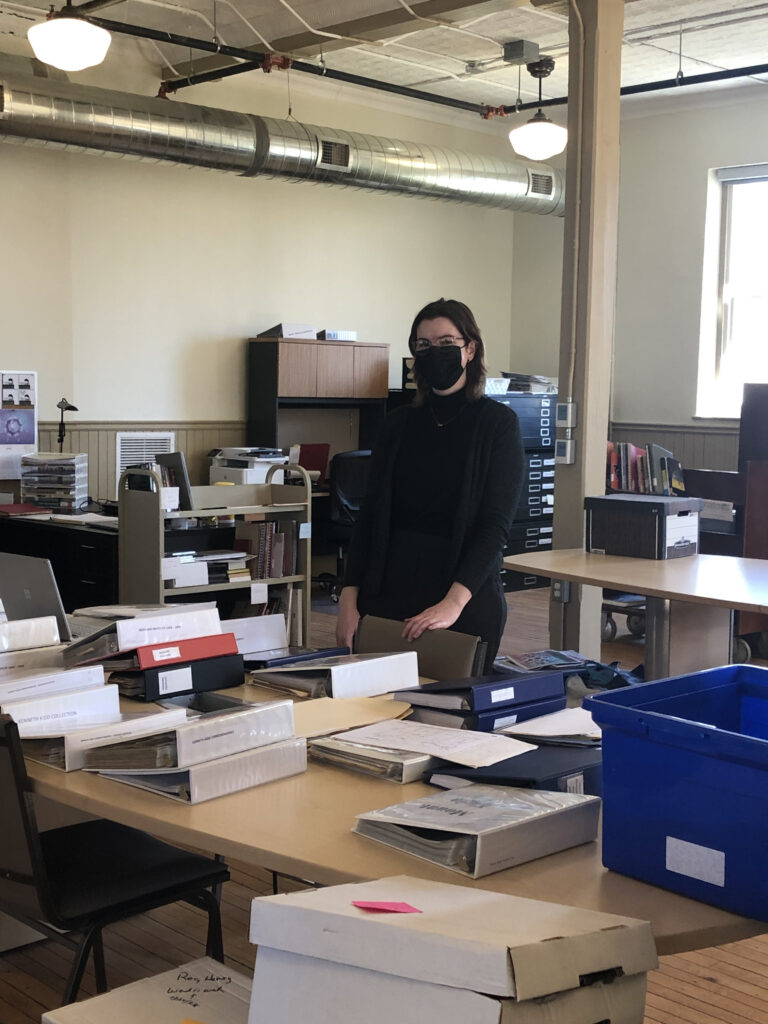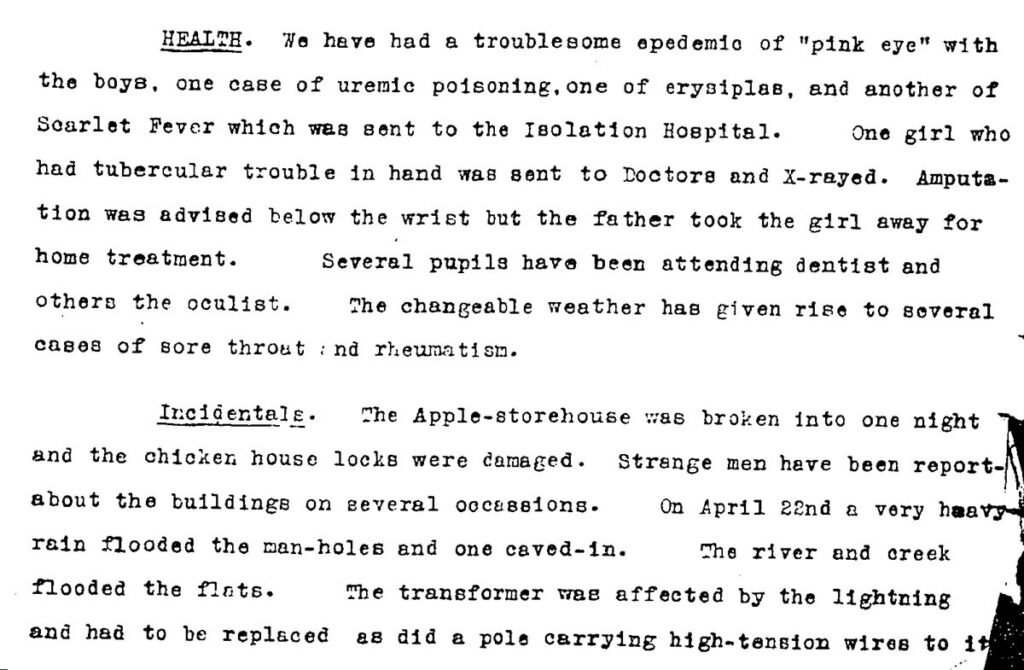Searching Archives & Gathering Records
Introduction
Recovery, Reclamation and Revitalization are goals that the Survivors’ Secretariat is working hard to achieve. Recovery of the children, and recovery of the records that may shed light on what happened to the missing children, is a high priority.
The Indian Residential School Settlement Agreement required Canada and various church entities to provide documents in their “possession and control” to the Truth and Reconciliation Commission (TRC). The TRC’s Calls to Action called on federal, provincial, and municipal governments and churches to release any documents relating to residential schools and missing children and unmarked burials to the National Centre for Truth and Reconciliation (NCTR). Today, many records still have not been released, and Survivors and communities continue to fight for access, control and sovereignty over their own records.
The Value of Archival Records
Archives are a collection of historical documents or records providing information about a place, institution, or group of people.¹
One of the main objectives of the Secretariat is to access and obtain all information, documentation, and records related to children who were taken to the Mohawk Institute. While The National Centre for Truth and Reconciliation currently collects, houses, and preserves some documents related to residential schools, it is a goal of the Survivors’ Secretariat to obtain these records and put them together, with other records, in a Survivors’ Secretariat Archive – that will be accessible to Survivors, their families, and the community. This will take time, and until that happens, community members may be able to access records as outlined in this post.
Frequently Asked Questions
Q: How many records relating to residential schools in Canada are there?
Throughout Canada, and in other countries, millions of documents and records related to residential schools exist. Some of these records may even be housed in private offices, homes, schools, and other locations.
What we know:
- There are at least five million records at the National Centre for Truth and Reconciliation (NCTR), with only one million of them currently accessible online.
- Less than five hundred records relating to the Mohawk Institute from the federal government and the Anglican Church are currently accessible online at the NCTR; however, the Secretariat believes that there are between 12,000 and 14,000 records in the NCTR database.
- The New England Company, which operated the Mohawk Institute for decades, may be housing records relating to the Mohawk Institute that have not been obtained by the federal government or the Anglican Church.
- The Province of Ontario, the City of Brantford, the Ontario Provincial Police and many other institutions may have records in their possession.
Overall, no one knows for certain how many records are in existence.
Q: What type of documents are available and in what format?
Records exist in various formats. These include: print/newspaper; digital/digitized/online; photographs; and audio/video recordings.
For example, records within the NCTR Archives include:
- Thousands of hours of statements from Survivors, their families, staff and those affected by the residential school system;
- Reports from school principals, healthcare workers, government and/or church officials; and
- Student admissions, school histories, administration records, photographs, maps, plans, and drawings from the federal and provincial offices and various religious entities.
The TRC’s full report and its summary report “They Came for the Children” outlines many of the instances where children ran away from residential schools, including the Mohawk Institute.
Q: How is the Secretariat planning to complete this research? What challenges has it faced?

The Secretariat continues to request access to all documents held by governments and religious orders that can assist in the recovery of the children and help in documenting and sharing the truth and history of the Mohawk Institute’s operations.
The Secretariat is working with a team of historians and researchers at Know History, which includes two Haudenosaunee: Skylee-Storm Hogan-Stacey (Kahnawà:ke) and Taylor Gibson (Six Nations of the Grand River) who have requested access to various archives. Once access is granted, the team searches through the records and identifies those documents, images, and records related to the Mohawk Institute and then scans these materials.
There are countless boxes to examine and review. Some of the older records are difficult to scan due to their size, condition, and age. Some are over 100 years old and therefore need to be handled very carefully. Some institutions may also not know what is in their boxes of records – with material that has never been organized, made into lists, or digitized – which makes this work even more difficult.
Many of the challenges and barriers that the Secretariat faces relate to institutional policies and procedures that have been in place for decades, including: colonial law, institutionalism, racism, and a reluctance to recognize Indigenous data sovereignty – the right of Indigenous Peoples to control information from and about their communities and lands.
In addition, geography, lack of resources, inconsistent record keeping, lack of care, lack of knowledge, accidental or purposeful destruction of records, fire, and language barriers make it incredibly difficult to recover the records.
This TRC publication² “Canada’s Residential Schools: Missing Children and Unmarked Burials” explains one aspect of the missing information related to student deaths: “Due to the limitations in the records, it is probable that there are many student deaths that have not been recorded in the register because the record of the death has not yet been located…”³
Q: How many records has the Secretariat Recovered?
While it’s difficult to determine exact numbers, currently, the Secretariat has reviewed approximately 65,000 pages of records and collected over 1,400 documents related to the Mohawk Institute.
Q: Are these records accessible to the public? If not, why?
The records currently with the Secretariat are not yet in a database accessible to the community and many have legal restrictions attached to them that have been imposed on the Secretariat. The Secretariat is working to change this. Many of the records and documents that the Secretariat has reviewed are accessible in other locations.

NCTR Archives
The archives currently house more than five million records in its archival collections. The overwhelming majority of these records currently consist of those created or collected by the TRC during its mandate. The NCTR also actively collects records on various issues and subject areas important to Indigenous communities across the country. The NCTR has a process in place for individuals to request access to their records or those of their loved ones.
For more detailed information on how to use these digital archives, you can watch this video (scroll down to fourth video on the page) which features Dawn Hill, a Survivor of the Mohawk Institute and Board member of the Survivors’ Secretariat.
There are also tutorial videos on how to:
Library and Archives Canada / Residential School Records Resources
This government web site provides information on how to search for: historical data, newspaper clippings, photographs, letters, residential school records, and audio recordings.
Library and Archives Canada
395 Wellington Street
Ottawa, ON K1A 0N4
Reference Services: 613-996-5115 or 1-866-578-7777 (select 1, 8)
Huron Community History Centre
The Community History Centre worked with Defining Moments Canada, the Shingwauk Residential School Archive, and the Buxton National Historic Site. Through the Department of History, they also support ActiveHistory.ca, a project dedicated to making the work of historians more accessible to the public and promoting community-engaged historical practice.
Six Nations Public Library
SNPL houses Indigenous information for all residents of the territory who may wish to learn about historical and contemporary Indigenous matters.
P.O. Box 149
1679 Chiefswood Road
Ohsweken, ON N0A 1M0
Anglican Church of Canada Archives
The databases of the General Synod Archives are online and available for searching including: the archival descriptions, official statements, press releases, journal articles, books, microforms, periodicals, and photographs. Searches can be done by inserting keywords such as: “mohawk institute.”
Diocese of Huron
Research in the Diocese of Huron Archives can be conducted:
In person at: 1349 Western Road, London (below the Chapel of St. John the Evangelist, Huron University College). People are encouraged to make an appointment first before using the Archives.
By mail addressed to:
Diocese of Huron Archives Huron University College
1349 Western Road
London, ON N6G 1H3
Phone: 519-645-7956
Woodland Cultural Centre
The Woodland Cultural Centre Library strives to maintain as many resources as possible on residential schools, in particular the Mohawk Institute.
Woodland Cultural Centre
184 Mohawk St, Brantford, ON
N3S 2X2
519-759-2650
Sources
¹ Oxford Languages Dictionary
² They Came for the Children: Canada, Aboriginal Peoples, and Residential Schools, Truth and Reconciliation Commission, Inuuqatigiit — Centre for Inuit Children, Youth and Families
³ Canada’s Residential Schools: Missing Children and Unmarked Burials The Final Report of the Truth and Reconciliation Commission of Canada Volume 4, Page 16 Missing Children and Unmarked Burials